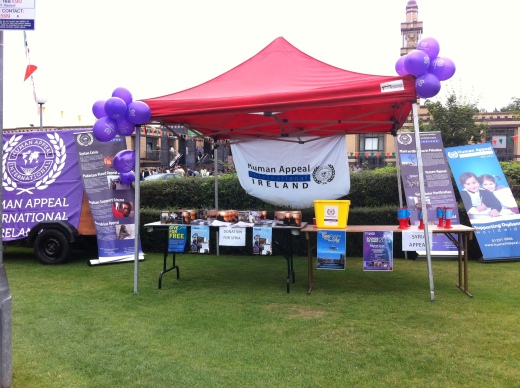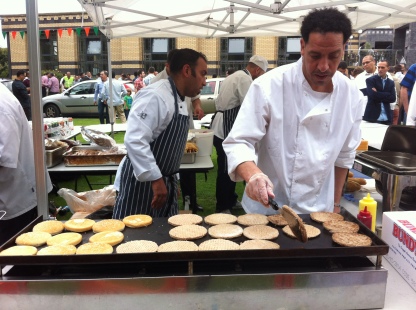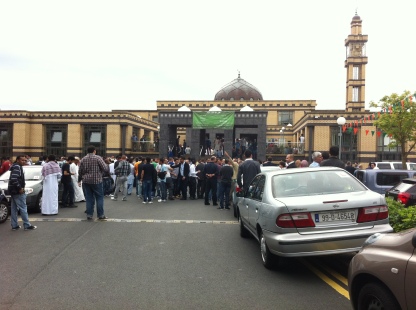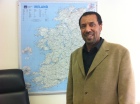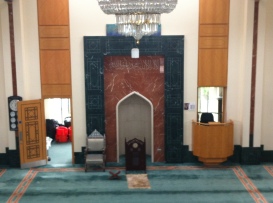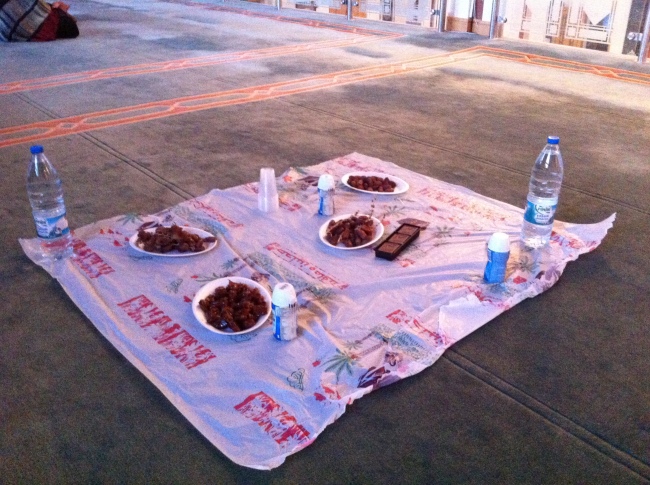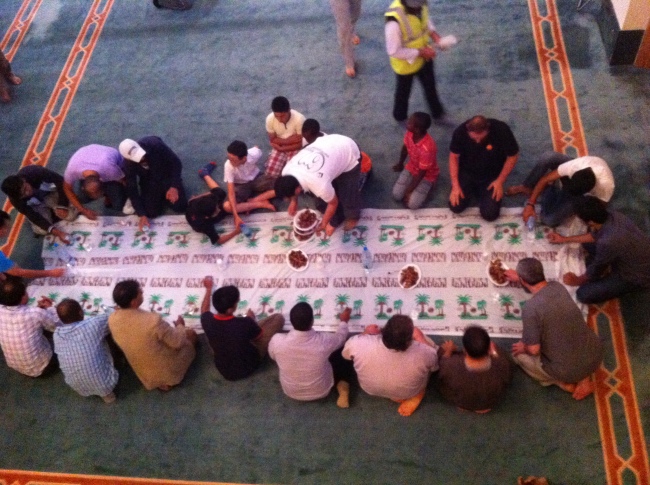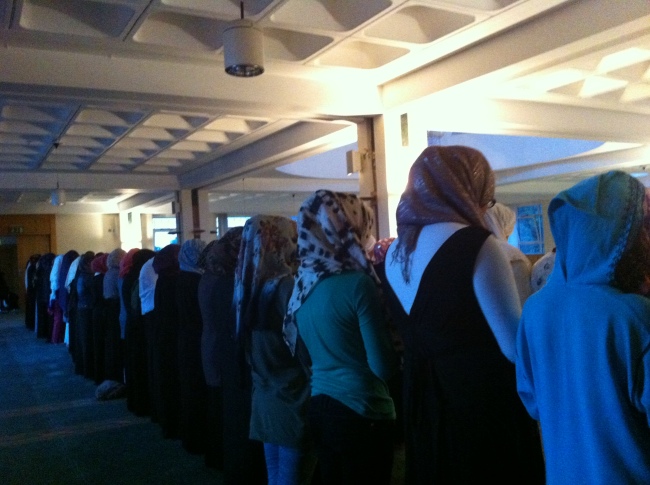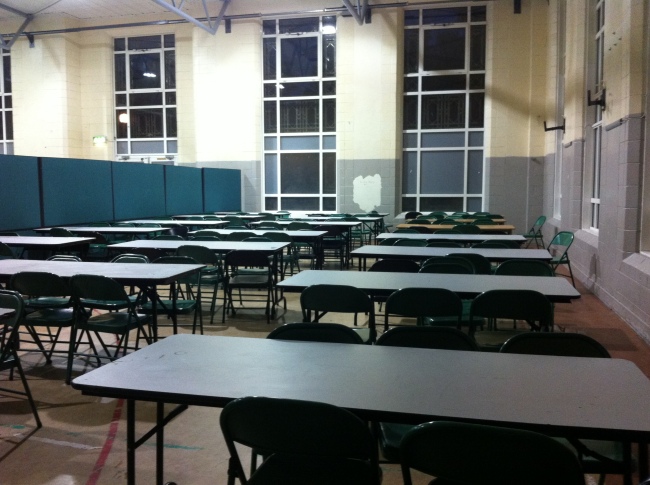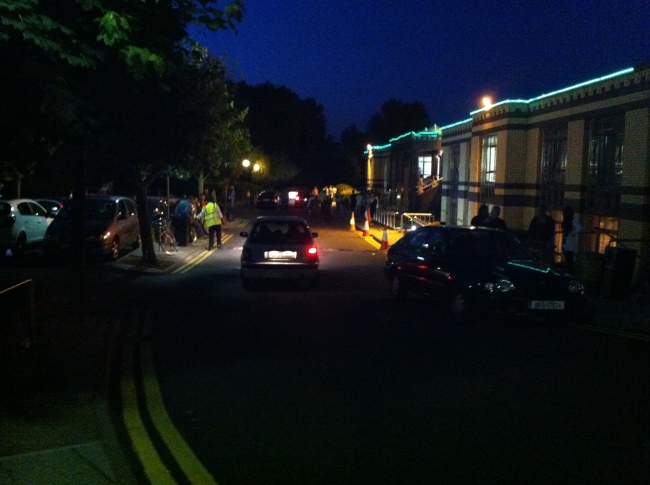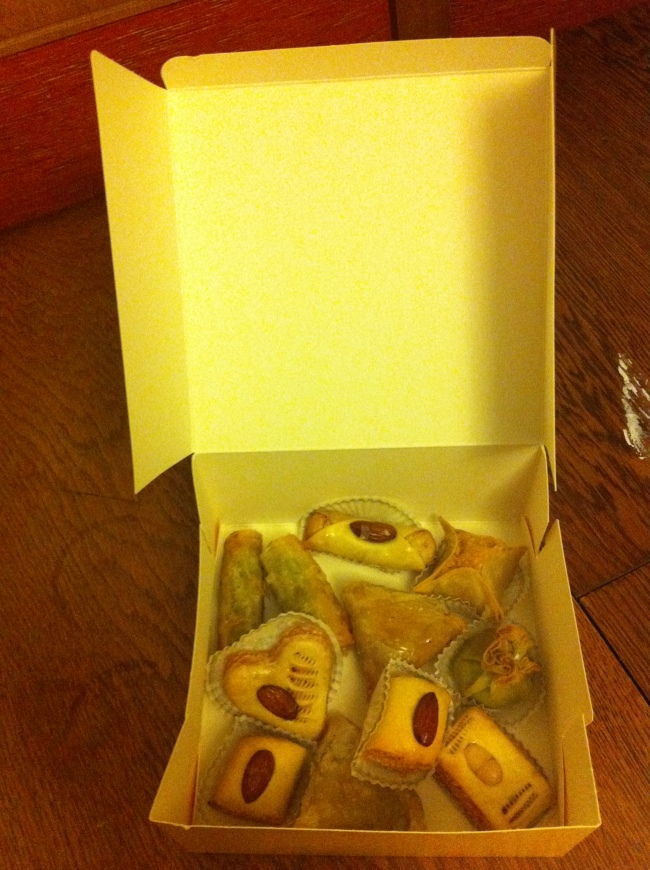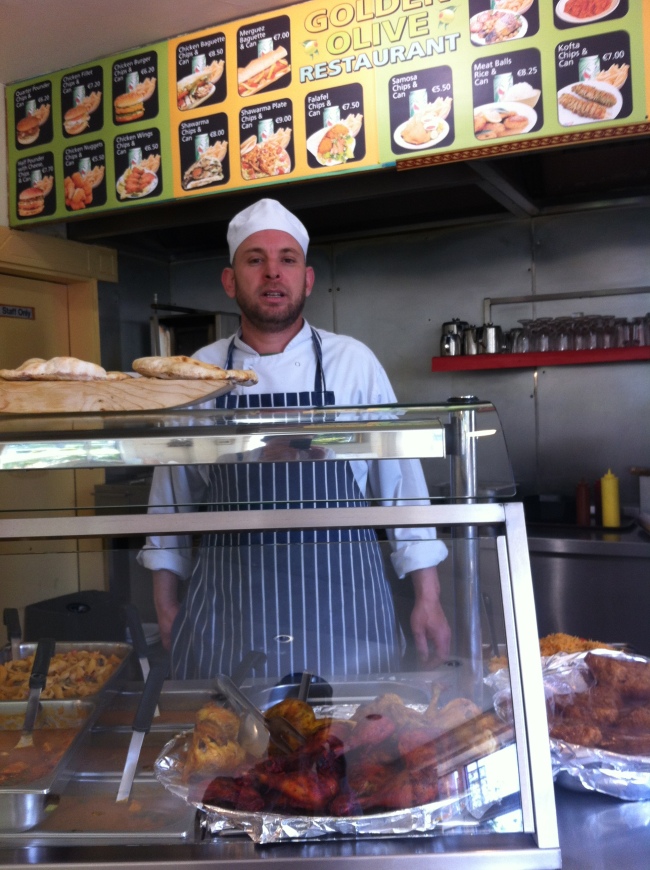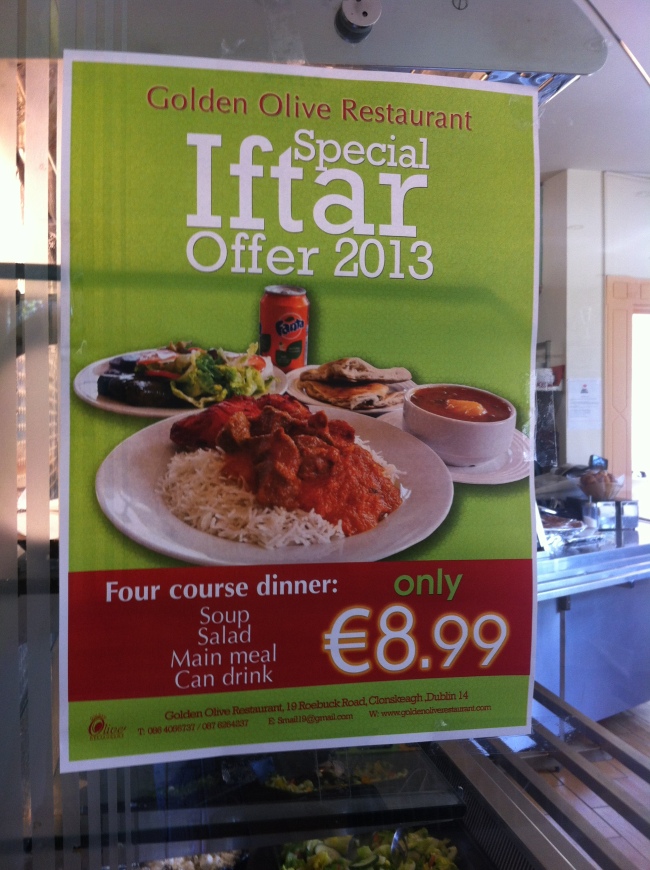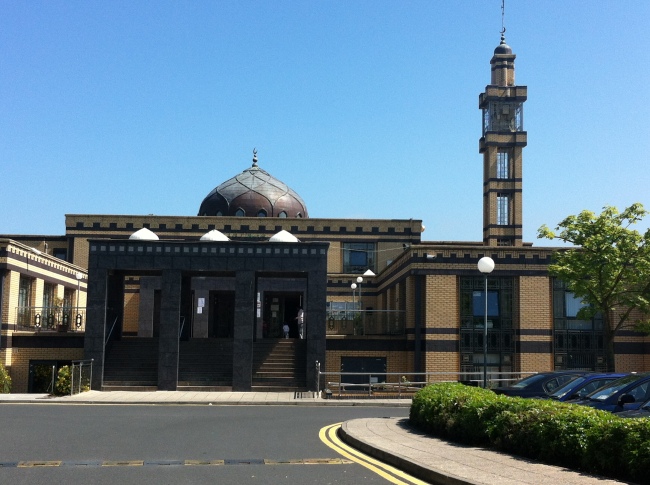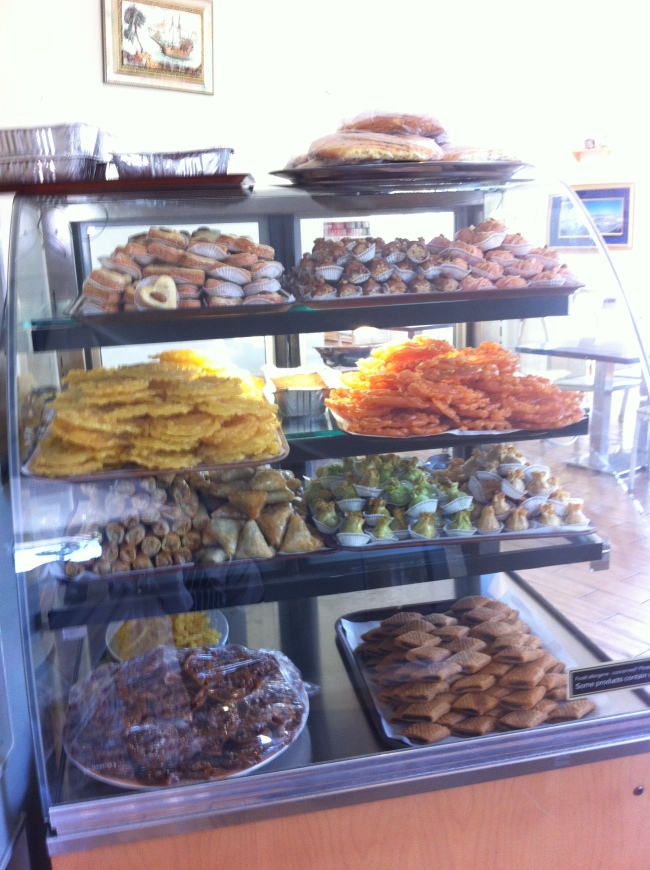The fast is over. Ramadan is done. Today is Eid ul-Fitr, the festival of the breaking of the fast – the Muslim equivalent of Christmas. After 29 days of fasting from sunrise to sunset Muslims are back to a normal eating routine. And so too, am I.
This morning I headed to the mosque in Clonskeagh. Traffic was heavy on approach, cars were parked on roadside verges. In the grounds of the mosque hundreds and hundreds of people had gathered after the morning prayers.
There was a barbeque, a stall for charity, colourful bunting was strung up between the lamp-light poles and I heard the distant words of an impassioned preacher from the entrance to the men’s section of the mosque.
Eid is a huge and upbeat celebration. New clothes are bought, presents of toys or money are given to children, many families go to play-barns, parks or even toystores. It’s a children-centred occasion. Adults don’t exchange gifts but do gather together with friends and family for a big celebratory evening meal.
There are a few little girls wearing long-sleeved communion dresses with white head scarves. I meet women from Turkey, Algeria, Moldova, Libya, Syria, Egypt and Ireland. There’s a man wearing a long full-length cream thobe who tells me he has travelled from Belfast especially for the celebrations today. There are probably people here from all over Ireland.
I feel now like I am on holidays. Ramadan is over. I fasted 19 out of the 29 days. It has been an extraordinary experience, a stint of intensive learning about Islam, Muslims in Ireland, self-restraint and self-awareness.
I finished the fast yesterday by going out for a meal with my husband to a beautiful restaurant in Rathmines called Little Jerusalem.
I spoke to a woman over the phone yesterday who told me that her family also fast from television during Ramadan in order to spend time with each other. She also encourages her children to focus on giving instead of asking. And this, the giving, the charity, the self-restraint – these are the elements that are at the heart of the Ramadan fast.
It’s a pleasure to be back to eating normally and sleeping normally again. I wonder how long my appreciation will last before I slip back in to taking my life and the pleasures of my life for granted again. My Ramadan entries are over. On Sunday I’m off to Waterford for a Zen Buddhist retreat. In the meantime – thanks for reading and a special thanks to all the Muslims who spoke to me, welcomed me, and gave me food over the past four weeks.
* an added note – the reason I missed ten days is because women are exempt from fasting when menstruating. The exemption lasts usually from ten to fifteen days. I found it incredibly difficult to go back to fasting after the exemption break. But I’m glad I did. Muslim women have to make up for the lost days but I won’t stretch that far myself.
